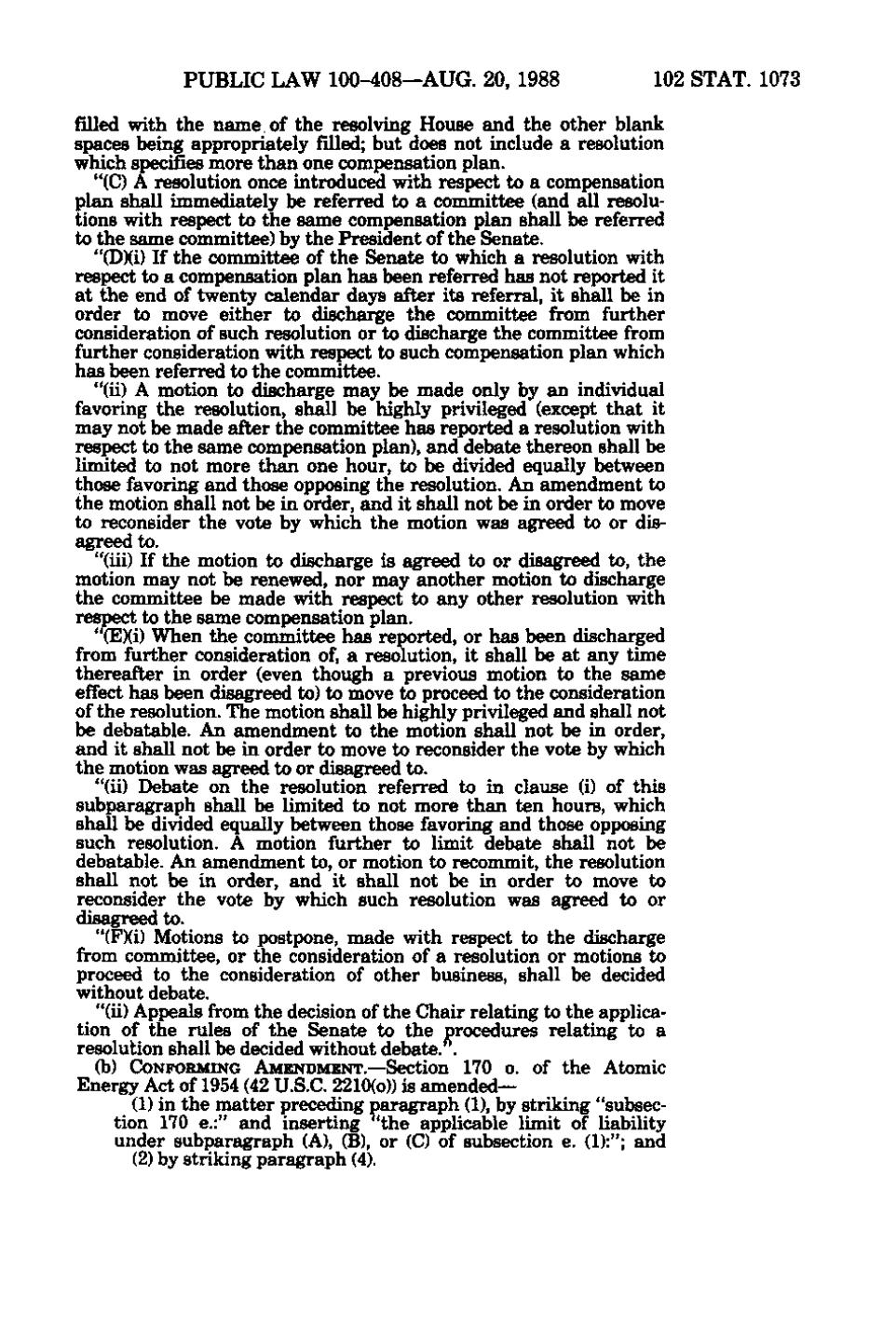PUBLIC LAW 100-408—AUG. 20, 1988
102 STAT. 1073
filled with the name,of the resolving House and the other blank spaces being appropriately filled; but does not include a resolution which specifies more than one compensation plan. "(C) A resolution once introduced with respect to a compensation plan shall immediately be referred to a committee (and all resolutions with respect to the same compensation plan shall be referred to the same committee) by the President of the Senate. "(D)(i) If the committee of the Senate to which a resolution with respect to a compensation plan has been referred has not reported it at the end of twenty calendar days after its referral, it shall be in order to move either to discharge the committee from further consideration of such resolution or to discharge the committee from further consideration with respect to such compensation plan which has been referred to the committee. "(ii) A motion to discharge may be made only by an individual favoring the resolution, shall be highly privileged (except that it may not be made after the committee has reported a resolution with respect to the same compensation plan), and debate thereon shall be limited to not more than one hour, to be divided equally between those favoring and those opposing the resolution. An amendment to the motion shall not be in order, and it shall not be in order to move to reconsider the vote by which the motion was agreed to or disagreed to. "(iii) If the motion to discharge is agreed to or disagreed to, the motion may not be renewed, nor may another motion to discharge the committee be made with respect to any other resolution with respect to the same compensation plan. "(E)(i) When the committee has reported, or has been discharged from further consideration of, a resolution, it shall be at any time thereafter in order (even though a previous motion to the same effect has been disagreed to) to move to proceed to the consideration of the resolution. The motion shall be highly privileged and shall not be debatable. An amendment to the motion shall not be in order, and it shall not be in order to move to reconsider the vote by which the motion was agreed to or disagreed to. "(ii) Debate on the resolution referred to in clause (i) of this subparagraph shall be limited to not more than ten hours, which shall be divided equally between those favoring and those opposing such resolution. A motion further to limit debate shall not be debatable. An amendment to, or motion to recommit, the resolution shall not be in order, and it shall not be in order to move to reconsider the vote by which such resolution was agreed to or disagreed to. "(F)(i) Motions to postpone, made with respect to the discharge from committee, or the consideration of a resolution or motions to proceed to the consideration of other business, shall be decided without debate. "(ii) Appeals from the decision of the Chair relating to the application of the rules of the Senate to the procedures relating to a resolution shall be decided without debate.". (b) CONFORMING AMENDMENT.—Section 170 o. of the
Atomic
Energy Act of 1954 (42 U.S.C. 2210(o)) is amended— (1) in the matter preceding paragraph (1), by striking "subsection 170 e.:" and inserting "the applicable limit of liability under subparagraph (A), (B), or (C) of subsection e. (1):"; and (2) by striking paragraph (4).
�
